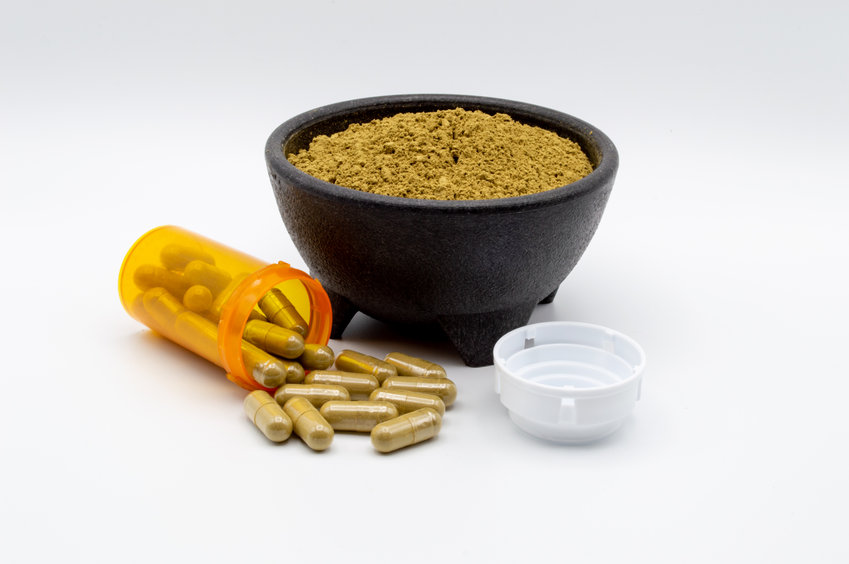Kratom has been widely used not only to cure chronic Discomfort but also to help increase concentration, enthusiasm, and mental alertness as a stimulant. For several years, kratom has been used by several South-East Asians as a Discomfort reliever. It has also proved its efficacy with regard to improving people’s mood and energy.
According to a study that was conducted in Thailand in 2015, it was used by some people to treat opioid addiction. In Europe and North America, kratom is being used increasingly from 2000 onwards. Not only is it being utilized as a recreational drug, but also to obtain some relief from Discomfort and symptoms of withdrawal caused by opioids.
Even though it has a host of benefits to offer, kratom is not without some side effects. Kratom usage is associated with several short-term as well as long-term side effects.

The Side Effects Of Using Kratom
- Constriction of pupils
- Flushed face
- Tremors
- Constipation
- Sweating
- Dizziness
- Nausea
- Itching
Short-Term Effects Of Using Kratom
The short-term effects of kratom consumption are quite complex. That might be because of the complex combination of chemical substances that are found in kratom.
Consuming low doses of kratom (about 1-5 grams) produces effects similar to those caused by the consumption of stimulating substances. Such effects can be felt within 10 minutes of kratom consumption, and they do not last longer than 90 minutes.
For some consumers of kratom, these effects might seem to be pleasurable. At the same time, some consumers may experience discomfort, agitation, and a sense of unease.
The effects that the users of kratom primarily feel include the following:
- Increased alertness
- Increased energy levels
- Low appetite
- Heightened sociability
These effects are not very intense and are quite like those caused by amphetamine.
However, moderate or high doses (about 5-15 grams) may produce effects similar to those caused by the intake of opioids. These effects may last for several hours. While many kratom users have reported feeling euphoric after consuming it, there are people who have found the experience rather uncomfortable. An intake of moderate or high levels of kratom may also result in analgesia, drowsiness, and so on.
If a person consumes more than 15 grams of kratom, they may end up losing their consciousness.
Long-Term Effects Of Using Kratom
The long-term effects of using kratom are rather unusual. These effects include the following:
- Hyperpigmentation
- Anorexia
- Weight loss
- Psychosis
It is important to remember in this context that long-term use of kratom does not cause any harm to any internal organ or any other part of our body.
The long-term use of kratom may lead to kratom dependency and even addiction. It was discovered in a study that over 50% of kratom consumers began to exhibit symptoms of kratom dependency after using it for six months regularly.
Moreover, a sudden stoppage in the consumption of kratom would result in symptoms of withdrawal. This is true, especially in the case of those who have developed kratom dependency.
A Few Symptoms of Kratom Withdrawal:
●Irritability
●Sweating
●Nausea
●High blood pressure
●Diarrhea
●Runny nose
●Joint and muscle Discomfort
●Insomnia
●An intense craving for kratom
Using Kratom Supplements/Products Safely
Kratom is well renowned as a dietary supplement in the United States. Here are some things you should check out about Kratom supplements before using them:
- You can’t cure or get rid of your disease from Kratom supplements. If you use it along with your medication or as a substitute for a prescription, you can end up harming your health.
- Sometimes the proportion mentioned in the labeling of a dietary supplement can be wrong. This means you might end up using more amount of Kratom than you should.
- According to United States laws, it doesn’t require a dietary supplement to go through tests.
Using kratom in the treatment of Discomfort is nothing new. But the FDA has not approved the use of kratom for medical reasons. We know too little about kratom at present. It’s why we must rely on the limited information and anecdotal accounts regarding the medicinal value of kratom. Based on the limited data we have at our disposal; it is safe to say that the reasonable and controlled use of kratom can effectively treat several ailments.
Taking Kratom and its supplement isn’t going to harm you – but should you want, you can always take your doctor’s advice before taking it.